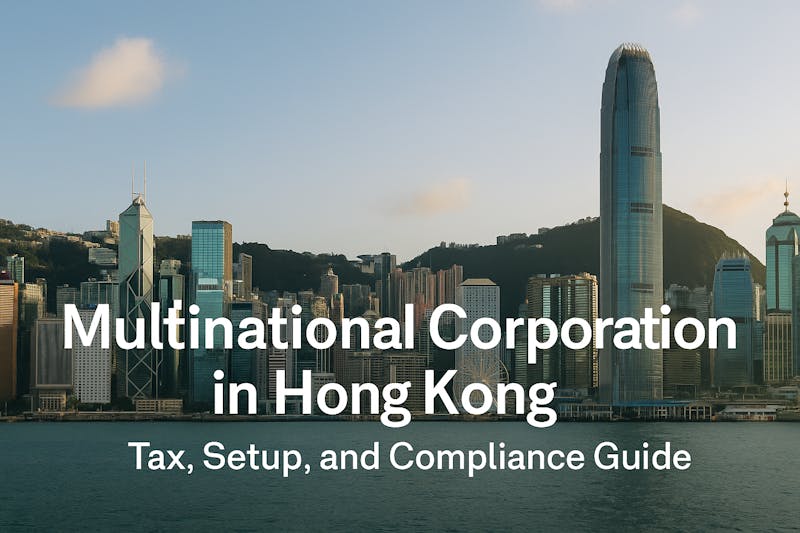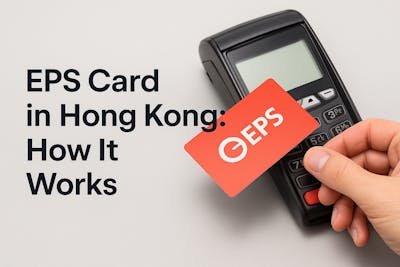What Is a Multinational Corporation (MNC)?
A multinational corporation is a company that operates in more than one country, managing production, sales, and decision-making across borders.
Modern MNCs control global supply chains, employ diverse international workforces, and invest heavily in research and development (R&D), logistics, and digital infrastructure.
Historically, global trade companies such as the British East India Company and Dutch East India Company laid early foundations for multinationals. Industrialization and post-WWII liberalization later gave rise to corporate giants like Ford, General Motors, and Unilever, which expanded manufacturing and marketing worldwide.
Today, MNCs shape economies through trade, foreign direct investment (FDI), and technology transfer. They also face growing expectations in sustainability and corporate responsibility.
Core Characteristics of Multinational Corporations
| Characteristic | Description |
|---|---|
| Global Presence | Operate across multiple jurisdictions through subsidiaries or branches to reach new markets. |
| Cultural Diversity | Employ multinational teams to foster creativity and adaptability. |
| Economies of Scale | Centralize production or procurement to reduce global costs. |
| Advanced Technology | Leverage modern tech for supply chain management, communications, and R&D. |
| Hybrid Management | Maintain a global HQ while allowing regional autonomy. |
| Compliance with Local Laws | Observe regulations in every market to reduce risk. |
| Talent Development | Invest in leadership programs and local upskilling. |
| Corporate Social Responsibility (CSR) | Prioritize sustainability, ethics, and community engagement. |
Why Multinational Corporations Matter
Multinationals power global commerce; around two-thirds to 80% of world trade is linked to MNE-coordinated value chains, and MNEs conduct the majority of global business R&D.
In Hong Kong, MNCs are integral to a services-led economy. Services made up 93.5% of GDP in 2023 (latest official share), and real GDP grew 2.5% in 2024, with growth supported by a rebound in goods exports and services (tourism and other cross-border activity).
Hong Kong’s Multinational Business Environment
Hong Kong ranks as the third-largest financial centre in the world, according to the Global Financial Centres Index (GFCI) released in March 2025. It maintains one of the most open economies globally and operates as a free port with no tariffs on imports or exports.
The city’s strategic location connects businesses directly to Mainland China and Southeast Asia. In 2024, 43.8% of re-exports by origin came from Mainland China, underscoring Hong Kong’s role as the leading gateway to Chinese markets.
Through the Mainland and Hong Kong Closer Economic Partnership Arrangement (CEPA), Hong Kong companies benefit from zero tariffs on eligible Hong Kong-origin goods that meet the rules of origin. CEPA also grants preferential access in 153 service sectors, including finance, logistics, and technology.
Hong Kong ranked third worldwide for Foreign Direct Investment (FDI) inflows based on 2024 flows (as reported in 2025), behind the United States and Singapore. It also ranked fifth in global FDI outflows, highlighting its strong cross-border investment position.
Why Hong Kong Attracts Multinational Corporations
Hong Kong stands out as a top destination for multinational corporations. Here’s why:
1. Tax Incentives and Simple Tax Regime
Profits tax tops out at 16.5% (two-tiered: 8.25% on the first HKD 2 million, then 16.5%). There’s no VAT/sales tax, no capital gains tax, and no withholding tax on dividends or interest. Royalties to non-residents may be taxable under IRO s.15(1)(b)–(bb).
2. No Foreign Ownership Restrictions
Foreign investors can own 100% of a Hong Kong company without local partnership requirements. This unrestricted ownership gives multinational corporations full control over business decisions, structure, and profits.
3. Access to Top Talent and Global Professionals
The Top Talent Pass Scheme now covers 199 universities (effective 1 Jan 2025), widening the pool of experienced hires in finance, tech, and innovation.
4. Government Initiatives Supporting Multinational Growth
In 2025, the Government injected HKD 1.43 billion into the Branding, Upgrading, and Domestic Sales (BUD) Fund and expanded its scope; HKTDC’s “E-Commerce Express” and business-matching services further support outbound expansion, while BUD “E-commerce Easy” backs Mainland/ASEAN online growth.
5. Robust Financial and Legal Systems
Hong Kong ranks #3 globally in the GFCI (March 2025). HKEX market cap was about HKD 34 trillion at end-November 2024. The common-law system (under the Basic Law) supports reliable contract enforcement and investor protection.
Common Structures for Multinational Companies in Hong Kong
| Structure | Definition | Advantages | Limitations |
|---|---|---|---|
| Subsidiary | New HK company owned by the parent | Separate legal entity; full control; good with banks/partners | Higher setup & upkeep; annual audit/filings; pays HK profits tax (two-tier) |
| Branch | Registered branch of a foreign company | Faster, cheaper start; leverage parent brand/resources | Parent is liable; must file HK profits tax returns; profit attribution can be tricky |
| Rep Office | Liaison only (research, promotion) | Lowest cost/commitment; great for testing the market | No sales, no contracts, no invoicing; no profit-based tax benefits |
| Regional HQ (role) | A HK entity designated to run the region | Strong hub for Mainland/ASEAN; deep talent; gov’t support channels | Higher overhead; no RHQ-specific tax break unless qualifying (e.g., CTC); other hubs compete |
Setting Up a Multinational Company in Hong Kong
1. Register Your Company
Incorporate your business with the Companies Registry and apply for a Business Registration Certificate under Cap. 310.
Use Form NNC1, your Articles of Association, and submit director/shareholder details.
2. Open a Corporate Bank Account
Open an account with a licensed bank or virtual bank such as ZA Bank, Mox, WeLab, or Livi.
Expect KYC and due-diligence checks—remote onboarding is available for eligible clients.
3. Secure a Registered Office
You must have a registered office in Hong Kong. Physical, virtual, or coworking addresses are acceptable if compliant with notice and record-keeping rules.
4. Hire Employees
Recruit local or overseas staff in line with the Employment Ordinance and enroll them in the Mandatory Provident Fund (MPF) scheme.
5. File Required Documents
Submit:
- Form NNC1 (Incorporation)
- Articles of Association
- Director and shareholder ID proofs
- Registered office address proof
6. Timeline
For standard e-filings, electronic certificates (Certificate of Incorporation and Business Registration Certificate) are issued within about 1 hour.
Paper filings take about 4 working days.
For a complete, detailed guide, visit our full article: Step-by-Step Guide to Set Up a Company in Hong Kong.
Compliance Requirements for Multinational Companies
When you set up a company in Hong Kong, staying compliant with local filing and record-keeping rules is essential.
Annual Return Filing
Every Hong Kong company must file an Annual Return (Form NAR1) with the Companies Registry each year. For private companies, the deadline is within 42 days after the incorporation anniversary.
Late filings attract higher registration fees:
- HKD 105 if filed on time
- HKD 870 if more than 42 days but less than 3 months late
- HKD 1,740 if 3–6 months late
- HKD 2,610 if 6–9 months late
- HKD 3,480 if over 9 months late
Persistent failure to file can lead to prosecution and fines under the Companies Ordinance (Cap. 622).
Statutory Records
Companies are required to keep their statutory registers up to date, including details of directors, shareholders, the company secretary, and significant controllers (SCR).
These records must be kept at the company’s registered office or another approved address in Hong Kong, which must be reported to the Registry using Form NR2.
Audit and Tax Filing
All Hong Kong companies must appoint a practising Certified Public Accountant (CPA) and prepare audited financial statements every year, unless they are dormant or qualify for a reporting exemption under Cap. 622, sections 359–364.
A Profits Tax Return (PTR) must be filed with the Inland Revenue Department (IRD) according to the company’s financial year-end:
- Code D – 15 August (for 31 December year-end)
- Code M – 15 November (for 31 March year-end)
- Code N – 2 May (for all others)
The IRD usually issues the first tax return about 18 months after incorporation or after the business starts operating.
Sector-Specific Licences
Some industries—such as banking, insurance, securities, education, travel, food and beverage, and employment agencies—require a licence before beginning operations.
These licences must be renewed regularly, and businesses must comply with the conditions set by their respective regulators to avoid fines or suspension.
Foreign Direct Investment (FDI)
Foreign direct investment occurs when a firm in one country makes a lasting interest in a business in another country — for example, by acquiring a company, setting up operations or expanding a branch abroad. It is a key growth channel for multinational corporations (MNCs) seeking global reach and control over supply chains.
Global FDI Trends
According to the United Nations Conference on Trade and Development (UNCTAD) World Investment Report 2024, global FDI flows amounted to USD 1.3 trillion in 2023, a decline of around 2%.
Investment into developing economies fell sharply to around USD 435 billion, the lowest level since 2005. Higher interest rates, geopolitical tensions, and new screening rules in major economies have made cross-border investment more cautious and selective.
Despite the slowdown, FDI continues to underpin global supply chains, create skilled jobs, and fund infrastructure in emerging markets. It also brings challenges: tax transparency, labor standards, and environmental impact are under growing scrutiny from both governments and consumers.
Hong Kong’s FDI Outlook
Hong Kong remains one of the world’s top investment destinations. UNCTAD data show it received about USD 113 billion in FDI inflows in 2023, a modest rise from 2022, ranking the city fourth globally. Early 2024 figures suggest Hong Kong climbed to third place worldwide, behind only the United States and Singapore.
Several factors explain why Hong Kong continues to attract multinational capital:
- Open, rule-based economy: no foreign-ownership restrictions and a strong legal system based on common law.
- Strategic position: direct access to Mainland China through CEPA, plus strong connections with ASEAN markets.
- Financial depth: ranked 3rd globally in the Global Financial Centres Index 38 (2025), with over HKD 34 trillion in stock-market capitalization.
- Efficient taxation: two-tier profits tax (8.25% / 16.5%), no VAT or GST, and no withholding tax on dividends or interest.
While global FDI is still below pre-pandemic levels, the shift toward stable, transparent, and well-regulated economies benefits hubs like Hong Kong. Its mix of open markets, clear tax rules, and proximity to Mainland China keeps it a natural choice for multinational headquarters and regional treasury centers in Asia.
Conclusion
Establishing a multinational presence in Hong Kong offers companies a gateway to Asia’s fastest-growing markets.
With transparent regulations, world-class financial infrastructure, and a simple tax regime, MNCs can efficiently manage regional operations and expand globally.
Ready to expand internationally?
Air Corporate simplifies the entire process — from incorporation to compliance — through a 100% online platform trusted by over 1,000 businesses worldwide.
FAQs
A well-known example of a multinational corporation is Apple Inc. It operates manufacturing, retail, and support services across multiple countries while maintaining its headquarters in the United States.
McDonald's is a multinational corporation (MNC). It operates restaurants in more than 100 countries, adapting its menu and business strategies to each local market while maintaining global brand standards.






